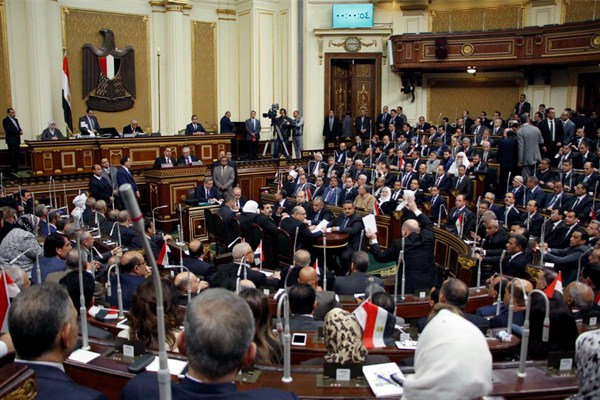Is there a tipping point for the grim state of affairs in Egypt, where the fifth anniversary of the popular uprising that brought down former President Hosni Mubarak is less than two weeks away? On Jan. 7, supporters of the outlawed Muslim Brotherhood clashed with police outside a hotel in Giza; no one was injured, but the exchange of gunfire was another hit to Egypt’s tourism industry. It was also a rare sign of Brotherhood supporters taking to the streets, after being severely repressed over the past two and a half years. The next day, two men armed with knives stormed a resort in Hurghada, on the Red Sea coast, stabbing and wounding three European tourists. The militants were reportedly affiliated with the self-proclaimed Islamic State.
And on Jan. 10, Egypt’s new parliament, stacked with supporters of President Abdel-Fattah el-Sisi, opened its first session in three years. It was a raucous and jingoistic affair, with legislators, led by the parliament’s new speaker, shouting over each other in their zeal to offer outlandish praise for the country’s new strongman. The Associated Press captured the scene: “Lawmakers during Sunday’s session spoke on their mobile phones or took selfies. Some waved to the TV cameras or held red, white and black Egyptian flags. One lawmaker, apparently unaware his microphone was on, was heard using expletives to complain about other legislators.”
One Egyptian newspaper called it “the parliament of chaos and confusion,” and some typically pro-regime and state media outlets even criticized the assembly. The next day, legislators quickly voted to cut off live television coverage of their proceedings.

